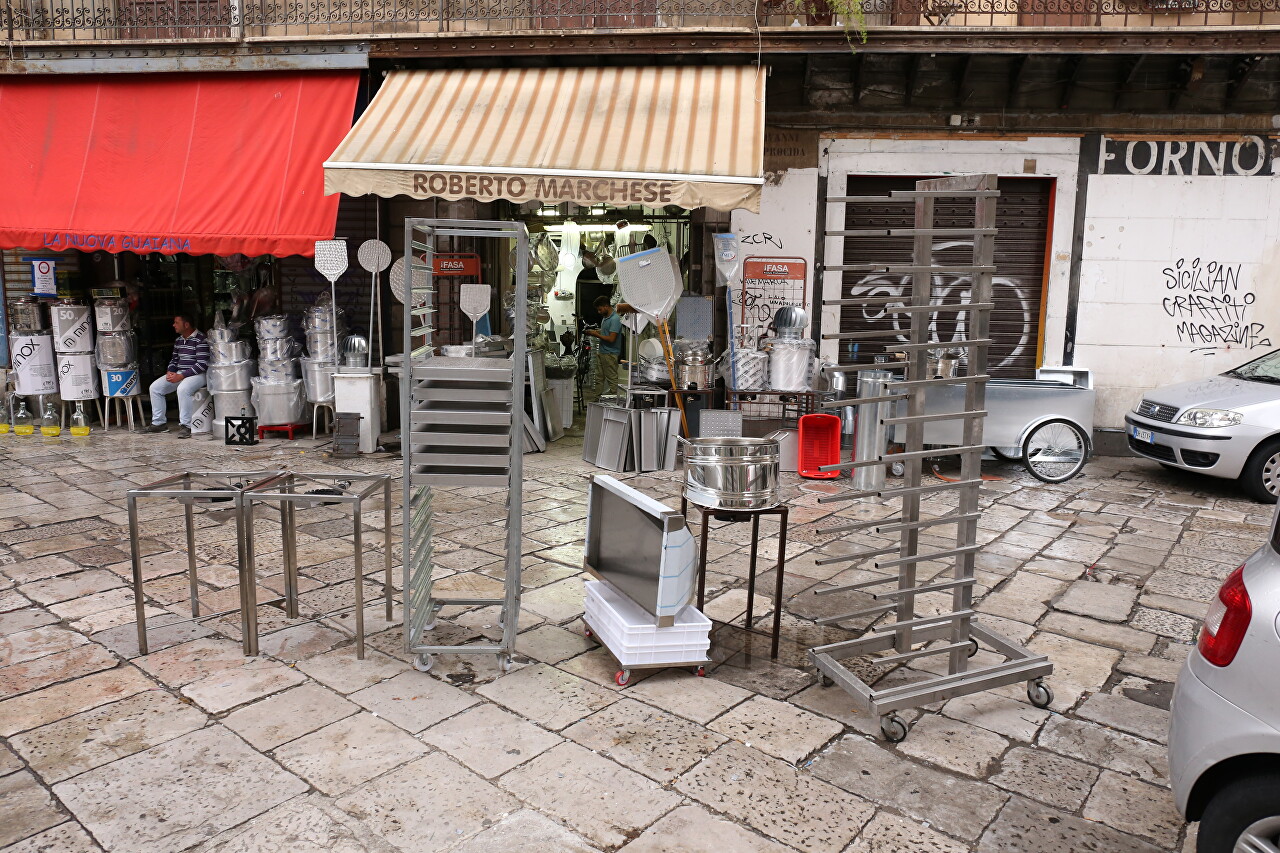Boilermakers Street (Via Calderai), Palermo
In the evening, I went to restock at the LIDL supermarket on Via Roma 59. Since I never take the same route, this time I took Via Calderai, which connects my "native" Via Maqueda with Via Roma.
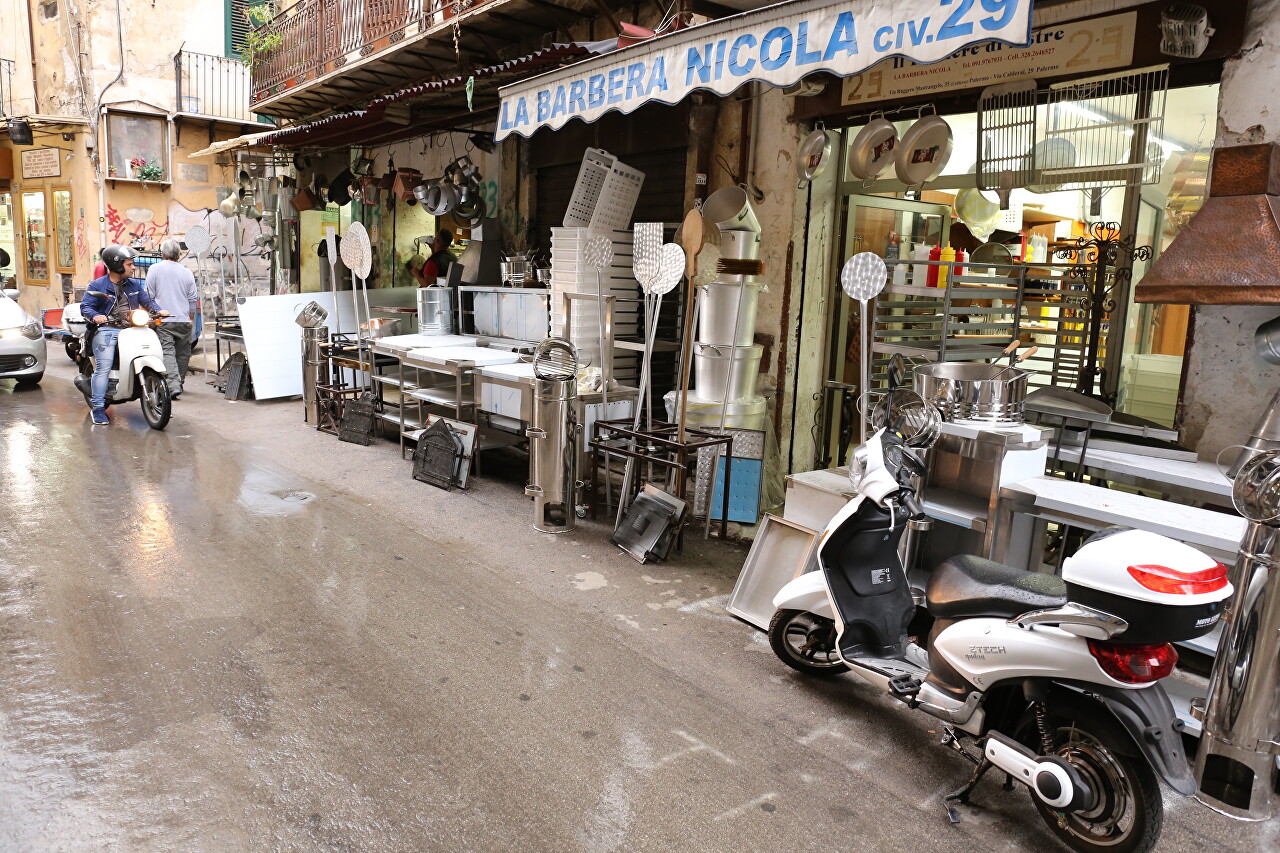
The first floors of the buildings on this street are occupied by small shops-workshops where they make all kinds of metal kitchen utensils and utensils.
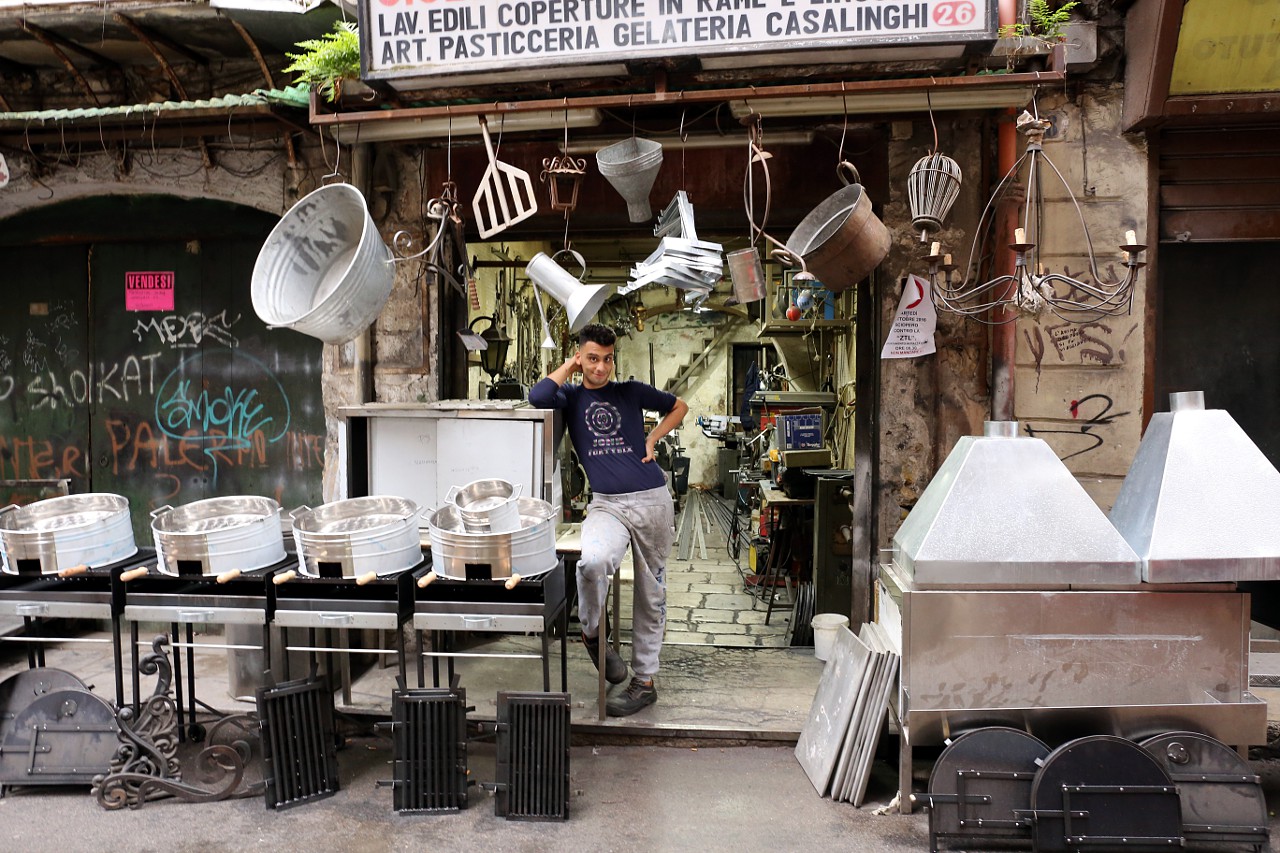
Caldaia in Italian means a tank or boiler for heating water and cooking food (from calda-gryachy, to heat). This is one of the few places in Palermo that has preserved its own characteristics since the Middle Ages. Here, on the territory of the Jewish quarter, for a long time lived tinsmiths and tinkers who made metal dishes.
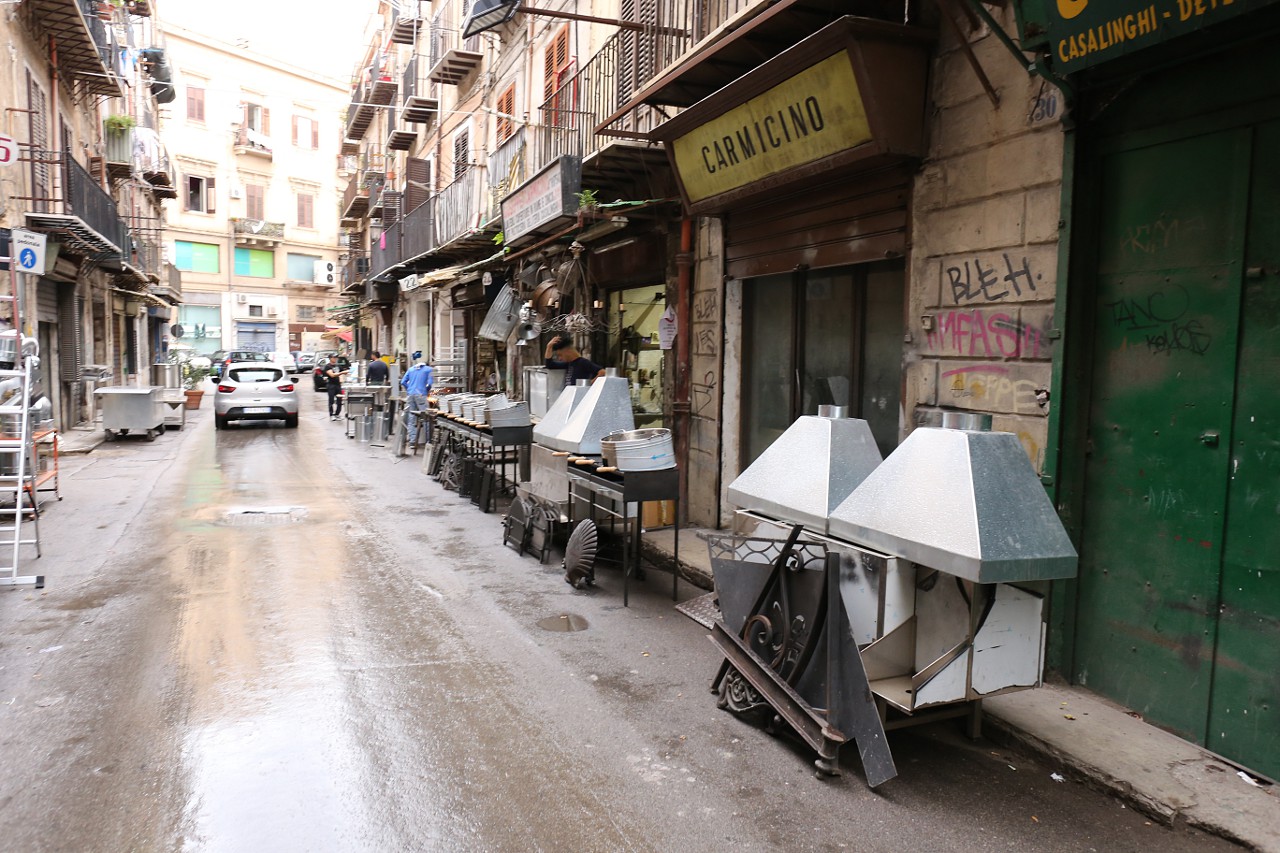
Even today, you can buy tanks, pots, basins, ladles of all types and sizes here,
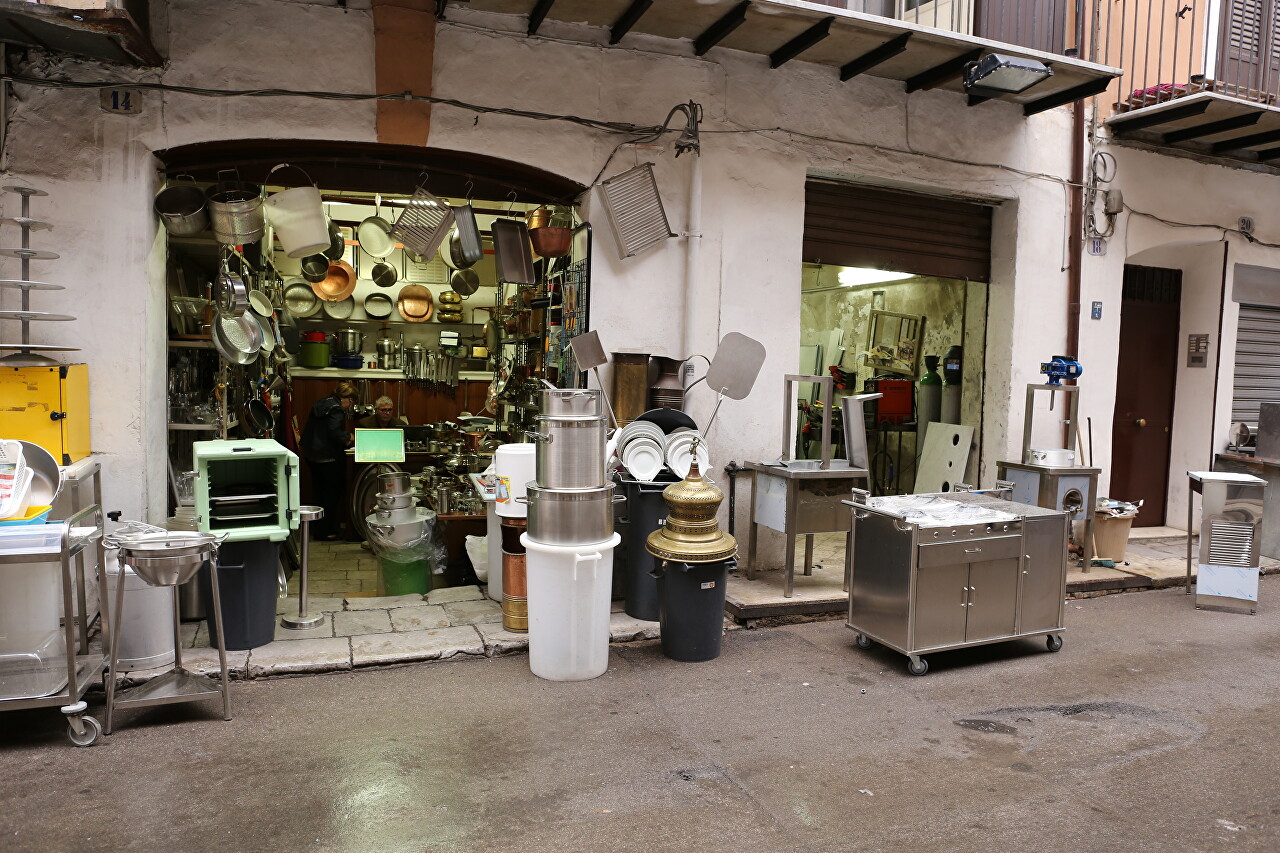
cookers, racks with baking trays, and other items made of copper, aluminum, or stainless steel.
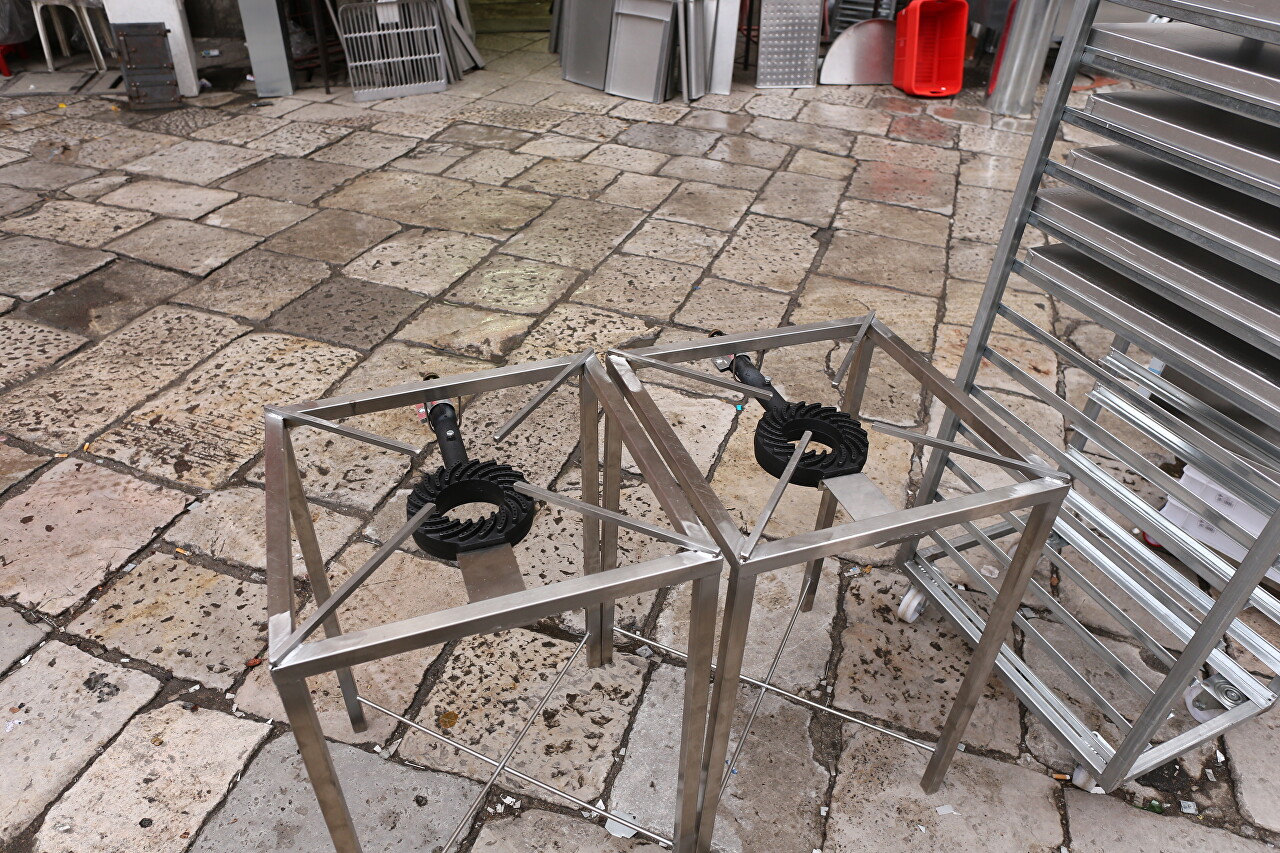
Roasters, trays, grates for cooking in oil, hoods and much more.
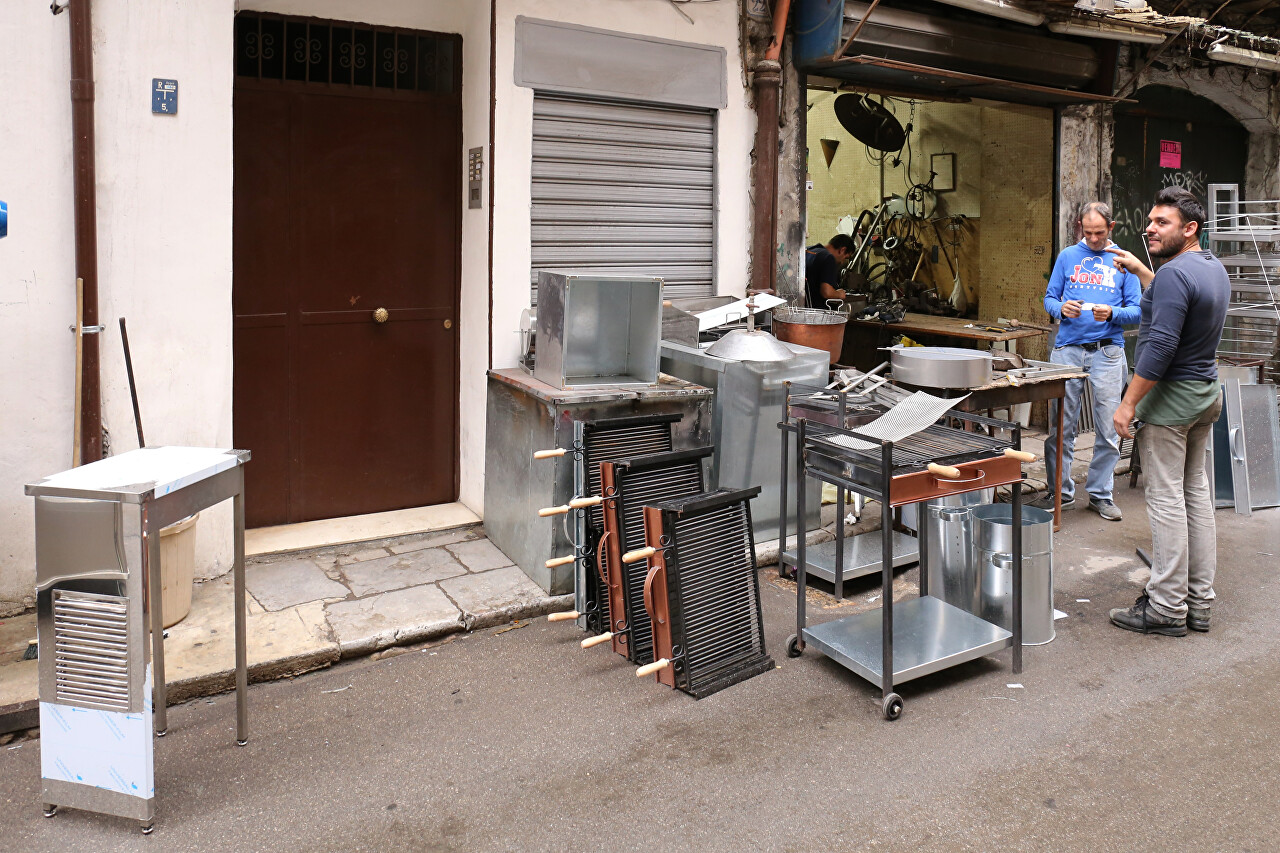
Logistics here is simple - finished products are displayed directly on the street.
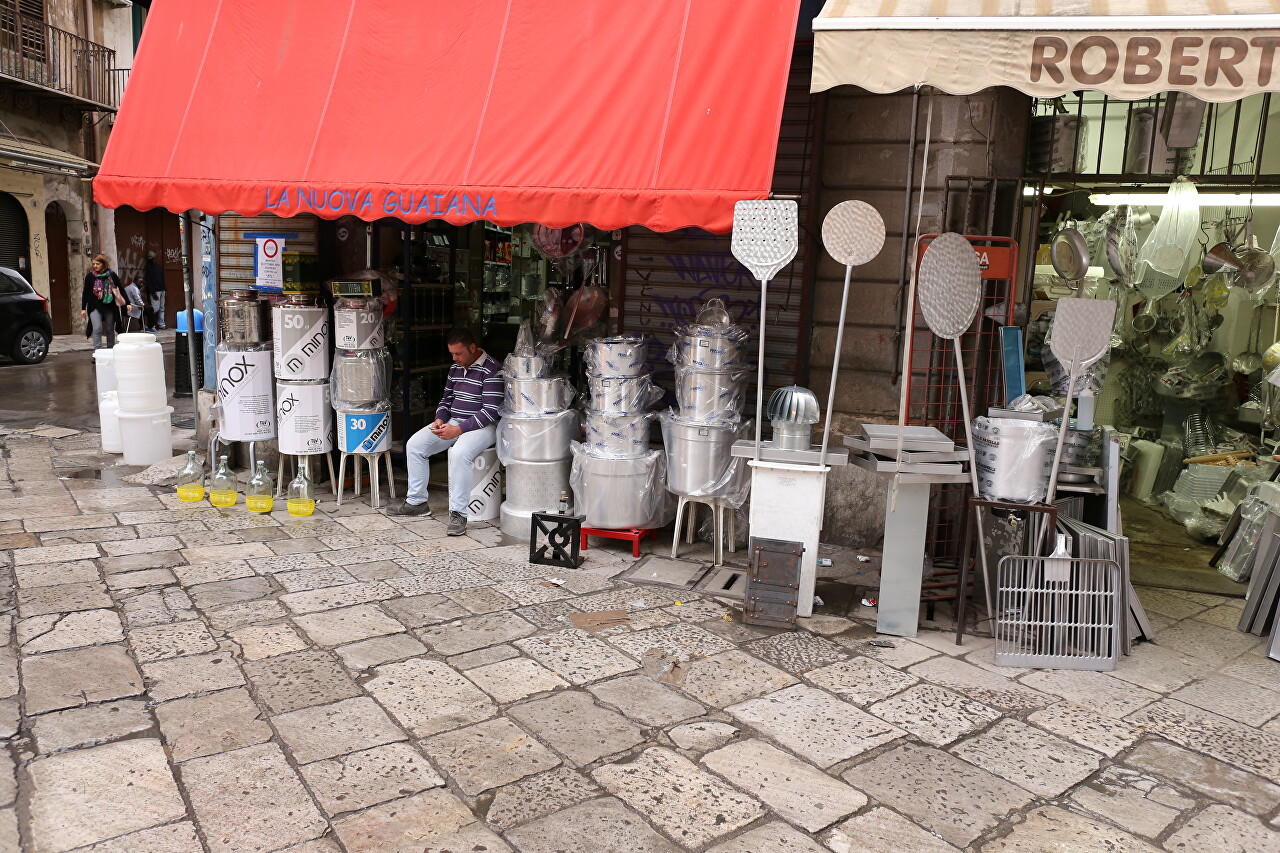
The Scottish short story writer and traveller of the Industrial Revolution, who visited Palermo in the early 19th century, wrote about Via Calderai: "This street is the most noisy I have ever seen in Europe."
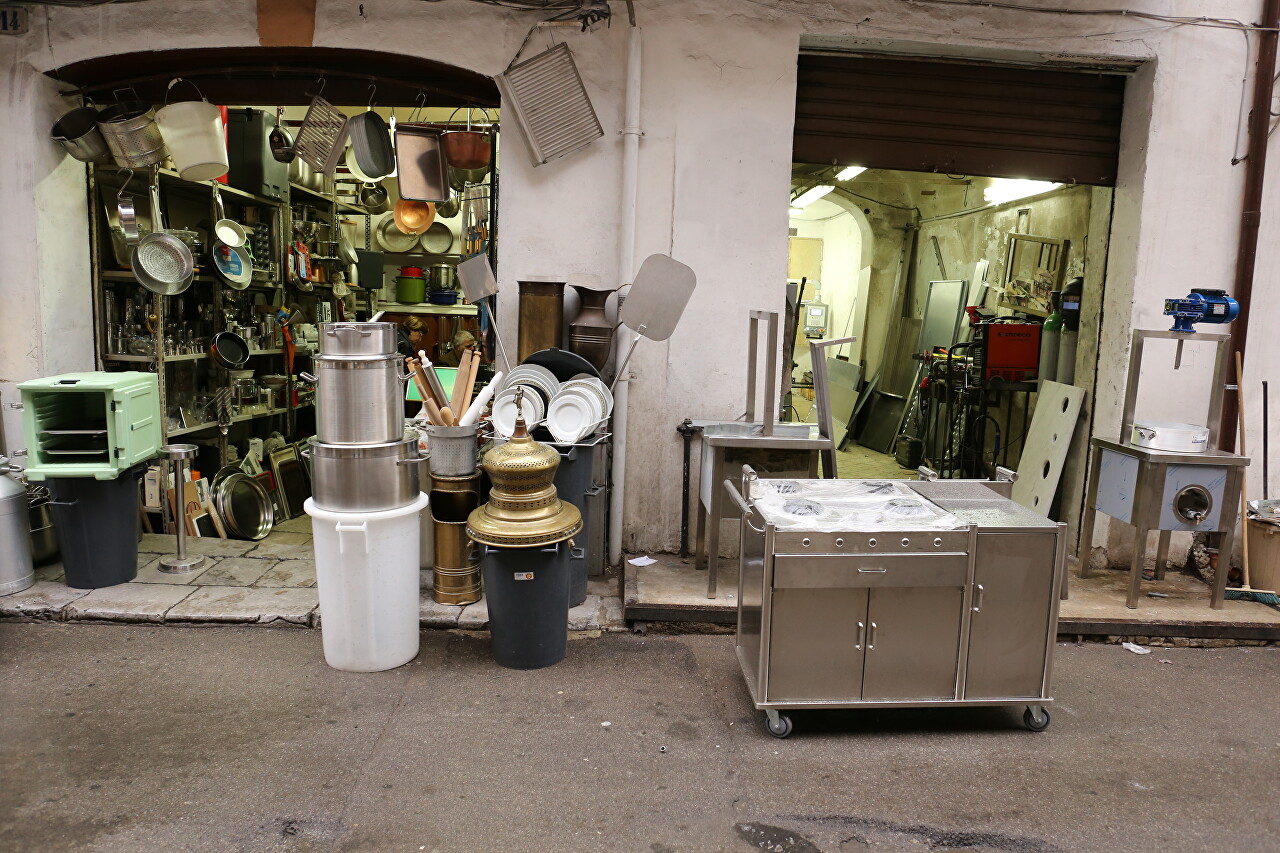
In our time, here, too, during the day, you can hear the screeching of power tools and fly showers of sparks.
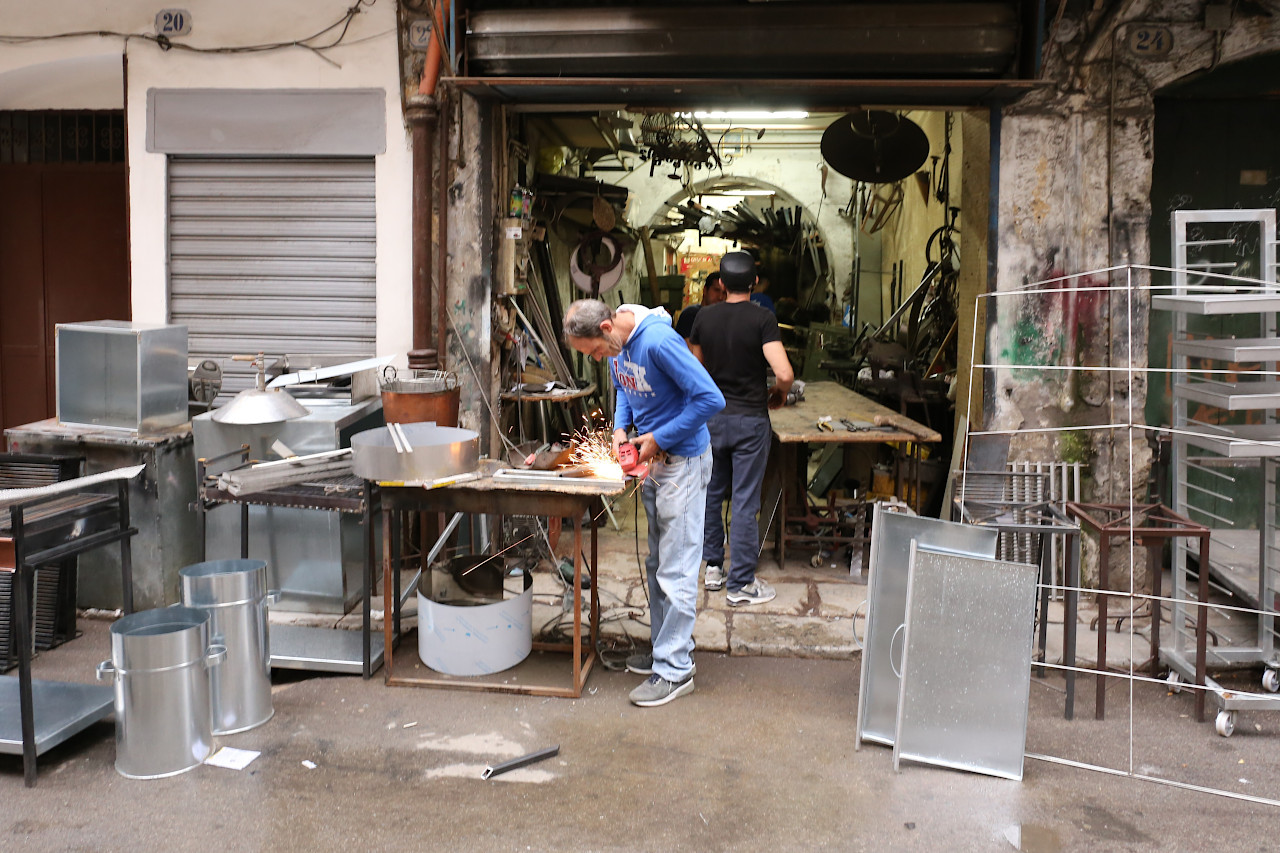
Nevertheless, the current small production facilities feel great in the first floors of multi-storey residential buildings.
